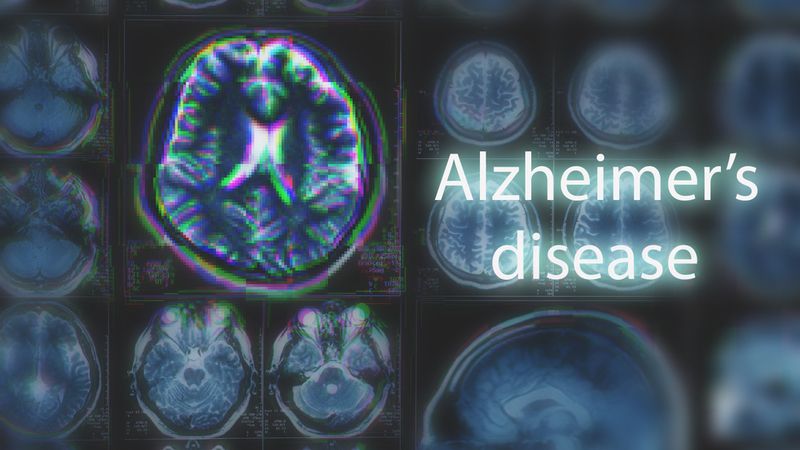New research focuses on treating non-cognitive symptoms of people with dementia
PTI Jul 26, 2018
New research presented at the Alzheimer's Association International Conference (AAIC) 2018 in Chicago focuses on the recent successes and ongoing challenges of drug and non-drug treatments for the non-cognitive symptoms experienced by people living with Alzheimer's dementia.

While the memory and thinking symptoms associated with the disease are the most well known, it is the behavioral and psychological symptoms of dementia (BPSD) agitation, anxiety, apathy, depression, wandering, hallucinations, insomnia, incontinence, disinhibition that often cause the greatest caregiving challenges and are the leading causes for placement in assisted living or nursing homes. Left untreated, these symptoms can accelerate decline and reduce quality of life.
At this time, the U.S. Food and Drug Administration (FDA) has not approved any drug treatments for these symptoms in people with Alzheimer's dementia. All drug treatments currently used are approved for other indications and prescribed for people with Alzheimer's "off-label."
"These underrecognized and undertreated symptoms in people with Alzheimer's and other dementias are often very difficult to live with and challenging to treat," said Maria Carrillo, PhD, Alzheimer's Association Chief Science Officer. "One of the 'untold stories' of Alzheimer's is the regular occurrence and overwhelming impact of these symptoms on the lives of people with Alzheimer's, their family members and caregivers."
"It is very important that as we continue to make advances in treating and preventing the memory and thinking symptoms of Alzheimer's and other dementias, we also focus on therapeutic strategies for the behavioral and other non-cognitive symptoms," Carrillo added.
The Alzheimer's Association recommends non-pharmacologic approaches such as psycho-social interventions as first-line alternatives to pharmacologic therapy for the treatment of dementia-related behaviors. These therapies include validation therapy, reminiscence and other personalized psychosocial interventions.
For example: validate that the person seems to be upset over something. Separate the person from what seems to be upsetting. Engage in regular physical activity to potentially reduce irritability and aggressive behavior. Assess for the presence of pain, constipation or another physical problem.
Psychotropic medications (antipsychotics, antidepressants, anticonvulsants and others) may need to be considered when the dementia-related behavior has not responded to non-pharmacologic approaches, especially if it is causing physical or emotional harm to the person with dementia or caregiver(s), however they must be used with extreme care, and must be regularly evaluated to determine the appropriate time of cessation. The FDA found that using antipsychotics to treat dementia-related behaviors in elderly persons with dementia was associated with increased mortality.
Synthetic Cannabinoid Treatment Shows Improvement in Agitation in People with Alzheimer's Results of a randomized, double-blind clinical trial suggest that nabilone a synthetic cannabinoid may be effective in treating agitation in people with Alzheimer's disease. "Agitation, including verbal or physical outbursts, general emotional distress, restlessness, pacing, is one of the most common behavioral changes associated with Alzheimer's as it progresses, and can be a significant cause of caregiver stress," said Krista L. Lanct t, PhD, Senior Scientist at Sunnybrook Health Sciences Centre and Professor of Psychiatry and Pharmacology/Toxicology at the University of Toronto.
Lanct t and colleagues investigated the potential benefits of nabilone for adults with moderate to severe Alzheimer's dementia with clinically significant agitation. Over the 14-week trial duration, 39 participants (77 percent male, average age 87) received nabilone in capsule form (mean therapeutic dose=1.6 +/- .5 mg) for six weeks, followed by six weeks of placebo, with one week between each treatment period. In addition to measuring agitation, the researchers assessed overall behavioral symptoms, memory, physical changes and safety.
Agitation improved significantly in those taking nabilone, compared to placebo, as measured by the Cohen-Mansfield Agitation Inventory (p=0.003). Nabilone also significantly improved overall behavioral symptoms, compared to placebo, as measured by the Neuropsychiatric Inventory (p=0.004). The researchers also observed small benefits in cognition and nutrition during the study. More people in the study experienced sedation on nabilone (45 percent) compared to placebo (16 percent).
"Currently prescribed treatments for agitation in Alzheimer's do not work in everybody, and when they do work the effect is small and they increase risk of harmful side effects, including increased risk of death. As a result, there is an urgent need for safer medication options," said Lanct t. "These findings suggest that nabilone may be an effective treatment for agitation; however, the risk of sedation must be carefully monitored. A larger clinical trial would allow us to confirm our findings regarding how effective and safe nabilone is in the treatment of agitation for Alzheimer's."
The Alzheimer's Association International Conference (AAIC) is the world's largest gathering of researchers from around the world focused on Alzheimer's and other dementias. As a part of the Alzheimer's Association's research program, AAIC serves as a catalyst for generating new knowledge about dementia and fostering a vital, collegial research community.
-
Exclusive Write-ups & Webinars by KOLs
-
Daily Quiz by specialty
-
Paid Market Research Surveys
-
Case discussions, News & Journals' summaries